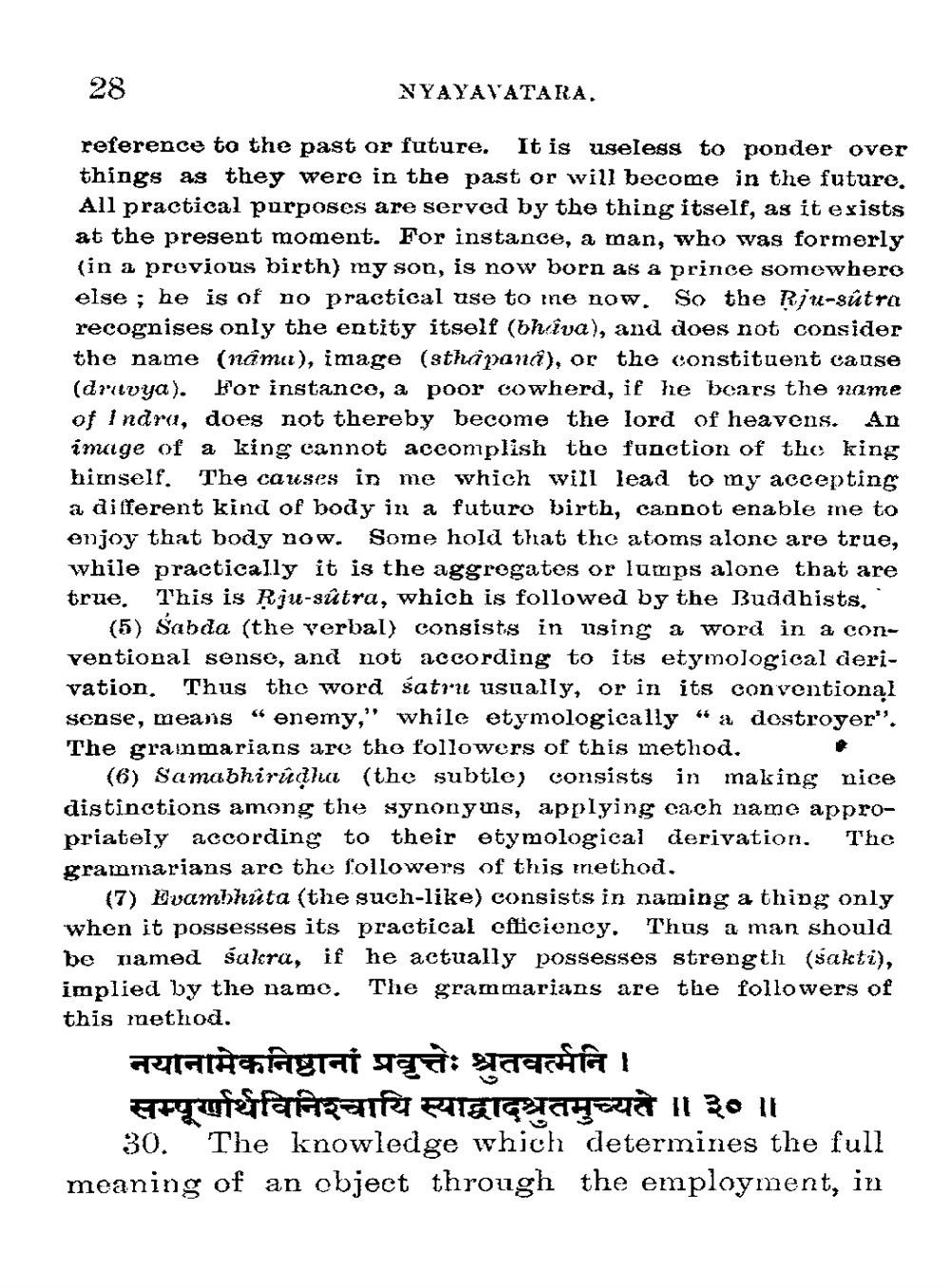________________
28
NYAYAVATARA.
reference to the past or future. It is useless to ponder over things as they were in the past or will become in the future. All practical purposes are served by the thing itself, as it exists at the present moment. For instance, a man, who was formerly (in a previous birth) my son, is now born as a prince somowhero else ; he is of no practical ase to me now. So the Rja-sútra recognises only the entity itself (ohtiva), and does not consider the name (nâmu), image (sthapana), or the constituent cause (drivya). For instance, a poor cowherd, if he bears the name of indra, does not thereby become the lord of heavens. An image of a king cannot accomplish the function of the king himself. The causes in me which will lead to my accepting a different kind of body in a futuro birth, cannot enable inne to enjoy that body now. Some hold that the atoms alone are true, while practically it is the aggregates or lumps alone that are true. This is Rju-sútra, which is followed by the Buddhists.
(5) Sabda (the verbal) consists in using a word in a conventional sense, and not according to its etymological derivation. Thus the word satrit usually, or in its conventional sense, means “ enemy," while etymologically " a destroyer". The grainmarians are tho followers of this method.
(6) Samabhirudha (the subtle) consists in making nice distinctions among the synonyms, applying cach name appropriately according to their etymological derivation. The grammarians are the followers of this method.
(7) Evambhúta (the such-like) consists in naming a thing only when it possesses its practical efficiency. Thus a man should be named salera, if he actually possesses strength (sakti), implied by the name. The grammarians are the followers of this method.
नयानामेकनिष्ठानां प्रवृत्तेः श्रुतवम॑नि । सम्पूर्णार्थविनिश्चायि स्याद्वादश्रतमुच्यते ॥ ३०॥
30. The knowledge which determines the full meaning of an object through the employment, in




